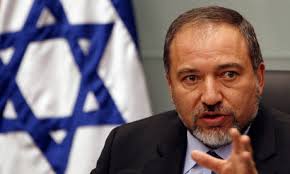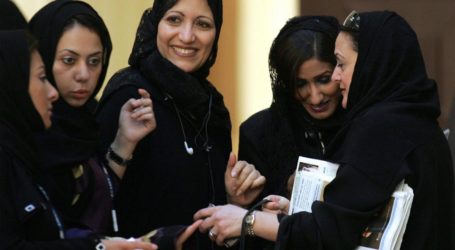ARAB LEAGUE SUMMIT TO ADDRESS SYRIA CRISIS, AND PEACE PROCESS
 Doha, 14 Jumadil Awwal 1434/26 March 2013 (MINA) – President Mohamed Morsy left Cairo on Monday (25/3) to join Arab leaders for the scheduled inauguration of the Arab summit on Tuesday (26/3) in Doha. Like other Arab leaders, Morsy goes to the most important annual Arab leaders’ gathering with an eye on two key issues: developments in Syria and the hope of reviving Palestinian-Israeli negotiations.
Doha, 14 Jumadil Awwal 1434/26 March 2013 (MINA) – President Mohamed Morsy left Cairo on Monday (25/3) to join Arab leaders for the scheduled inauguration of the Arab summit on Tuesday (26/3) in Doha. Like other Arab leaders, Morsy goes to the most important annual Arab leaders’ gathering with an eye on two key issues: developments in Syria and the hope of reviving Palestinian-Israeli negotiations.
The position of Egypt on both matters, Egyptian diplomatic sources say, is based essentially on promoting negotiations-based settlements, according to Ahram reports monitored by Mi’raj News Agency (MINA).
On the Palestinian-Israeli front, Cairo had promised Washington in no uncertain terms to give a good push to a new momentum – diplomats insist ‘momentum and not initiative’ – that US President Barack Obama is keen to promote with the hope of moving forward the long, stalemate process of negotiations between Palestinians and Israelis.
Cairo, according to Ahram Online’s sources, promised to “encourage” Hamas, the movement which rules Gaza, to “fully refrain from any attacks against Israeli targets” for the expected re-launch of direct talks between Palestinians and Israelis this spring.
In Doha, Cairo is going to side with a diplomatic demarche to be proposed by the Arab Gulf state to make an appeal for US President Obama to capitalise on a commitment he made to promote Palestinian-Israeli peace during a recent visit to Israel and the headquarters of the Palestinian Authority at Ramallah, in the West Bank.
Egypt, according to the sources who spoke to Ahram Online, would offer the Arab summit its willingness to mediate and host talks with the hope of eventually realising a Palestinian state.
Arab diplomatic sources say that the US demand of Arab capitals to re-propose the Arab peace initiative would be accommodated, but not verbatim.
“With such a right-wing government in Israel, and given the current political developments in the Arab world, it is rather unlikely for Arab leaders to come up and say we are re-offering the peace initiative; what is realistic, however, is for Arab leaders to affirm the need for the world to work in pursuit of a settlement to the Palestinian-Israeli file,” said one diplomat.
The attention that Arab leaders are expected to accord to the Palestinian file comes second to the main item on the Doha summit: Syria.
As Arab foreign ministers concluded their preparatory meetings at the Qatari capital for the summit on Sunday evening, agreement was by and large lacking on many elements of the Syrian file. Above all, consensus is still to be reached on an initiative forwarded by the host of the summit to invite the recently established Syrian opposition government, led by Ghassan Hitto.
Speaking from Doha, sources said that the character of Hitto itself is not subject to the full consent of all factions of Syrian opposition – much less Arab capitals.
Some Arab capitals are apprehensive about the agenda of Hitto, and told Qatar openly they prefer to work with Moaz El-Khatib, a Syrian opposition leader who on Sunday resigned from his post heading an opposition coalition.
Unlike Hitto, El-Khatib subscribes more to a negotiation-based settlement, rather than a settlement based on a military option.
Moreover, some Arab capitals are also apprehensive about the Qatar-endorsed initiative to fully isolate the regime of Bashar Al-Assad.
Arab diplomats from these countries say that it is one thing to support the opposition in its legitimate demand for democracy, and another to decide to isolate the Al-Assad regime at a time when it is still in control of at least the central state in Syria.
There is also, the same diplomats add, the concern over the fate of the ability of the Arab countries to influence the chances of a negotiated settlement. “This would be a tough insult for Al-Assad and it would certainly dissuade him from pursuing a negotiated settlement. We know that on the ground there are no guarantees that the opposition could have the upper hand even with the new armaments that are coming the way of the opposition from some European countries.”
Egypt’s position on the matter is not in favour of completely isolating Al-Assad, due to concerns over the impact of such a move over the chances of a negotiated settlement and also, in the words of one Egyptian government source, “due to obvious and perfectly legitimate concerns over the fate of Egyptian diplomats still working at our embassy in Damascus.”
Egypt is hosting an office of the Syrian opposition, and is also allowing the Syrian embassy, which represents the Al-Assad regime to operate in Cairo.
The draft of the final communiqué of the Arab summit is, in fact, appealing for the regime of Al-Assad to allow the Syrian people to accommodate their legitimate demands for democracy. It also calls on the UN to work on initiating national dialogue to allow for a process of peaceful transition.(T/P08/P03)
Mi’raj News Agency (MINA)






